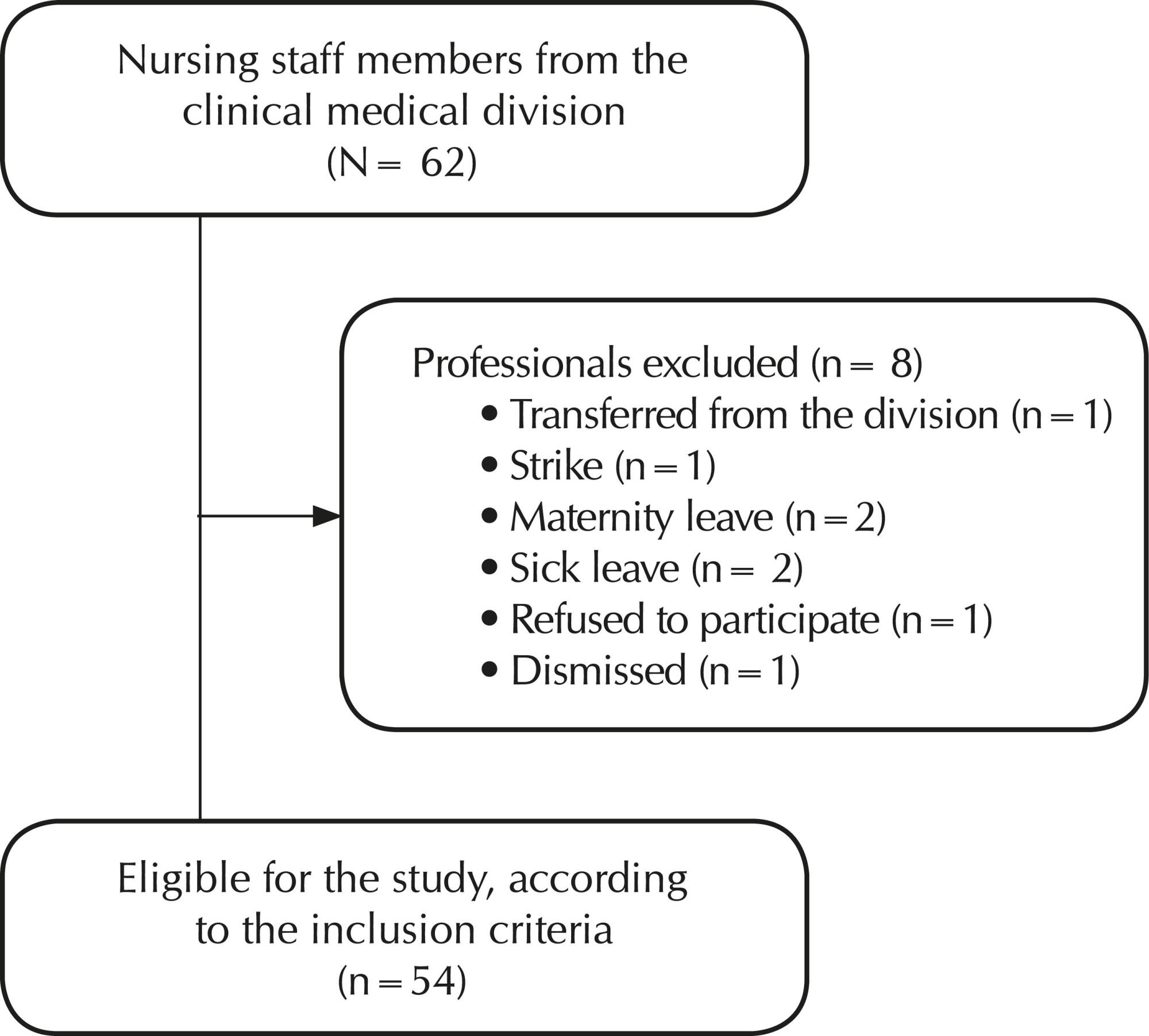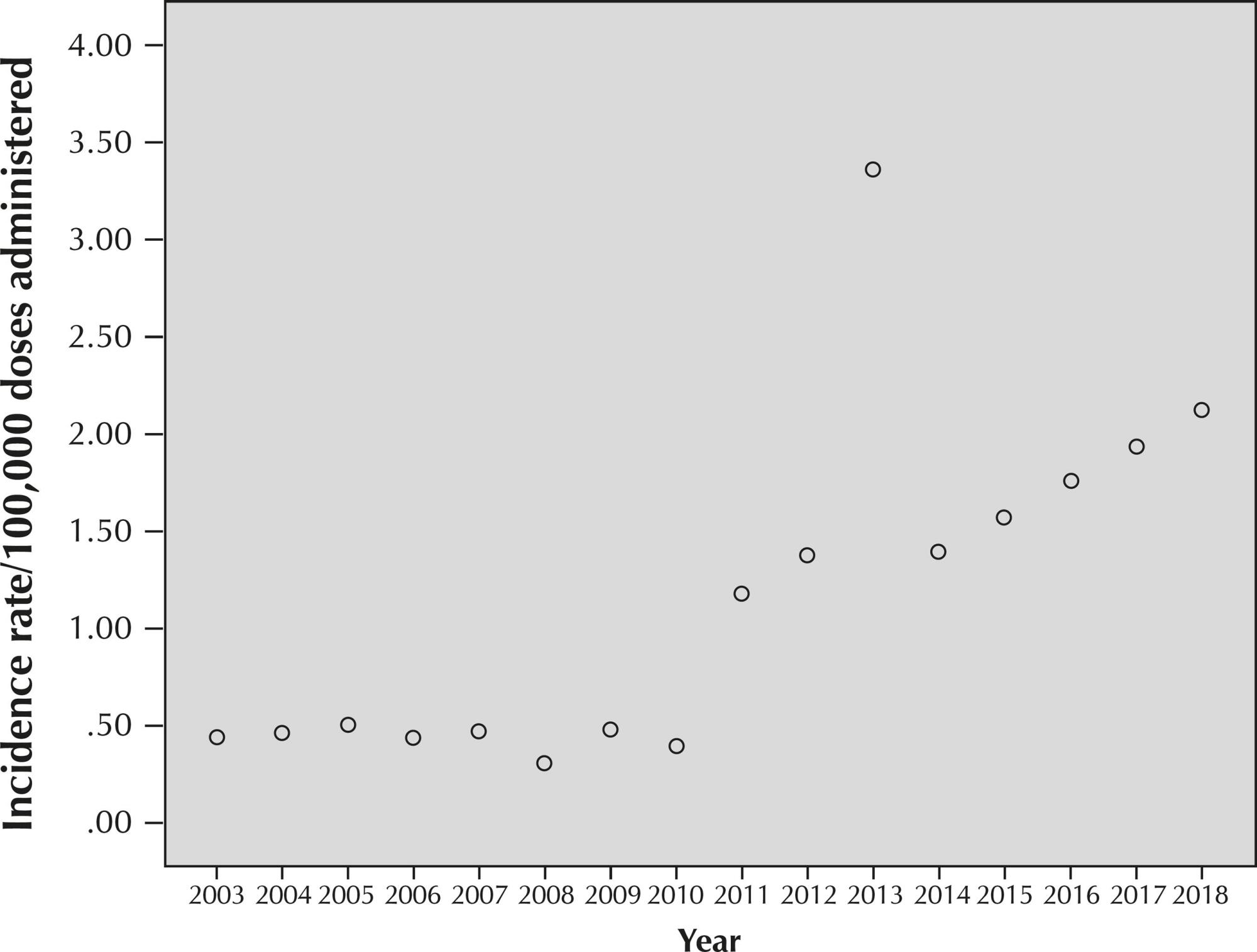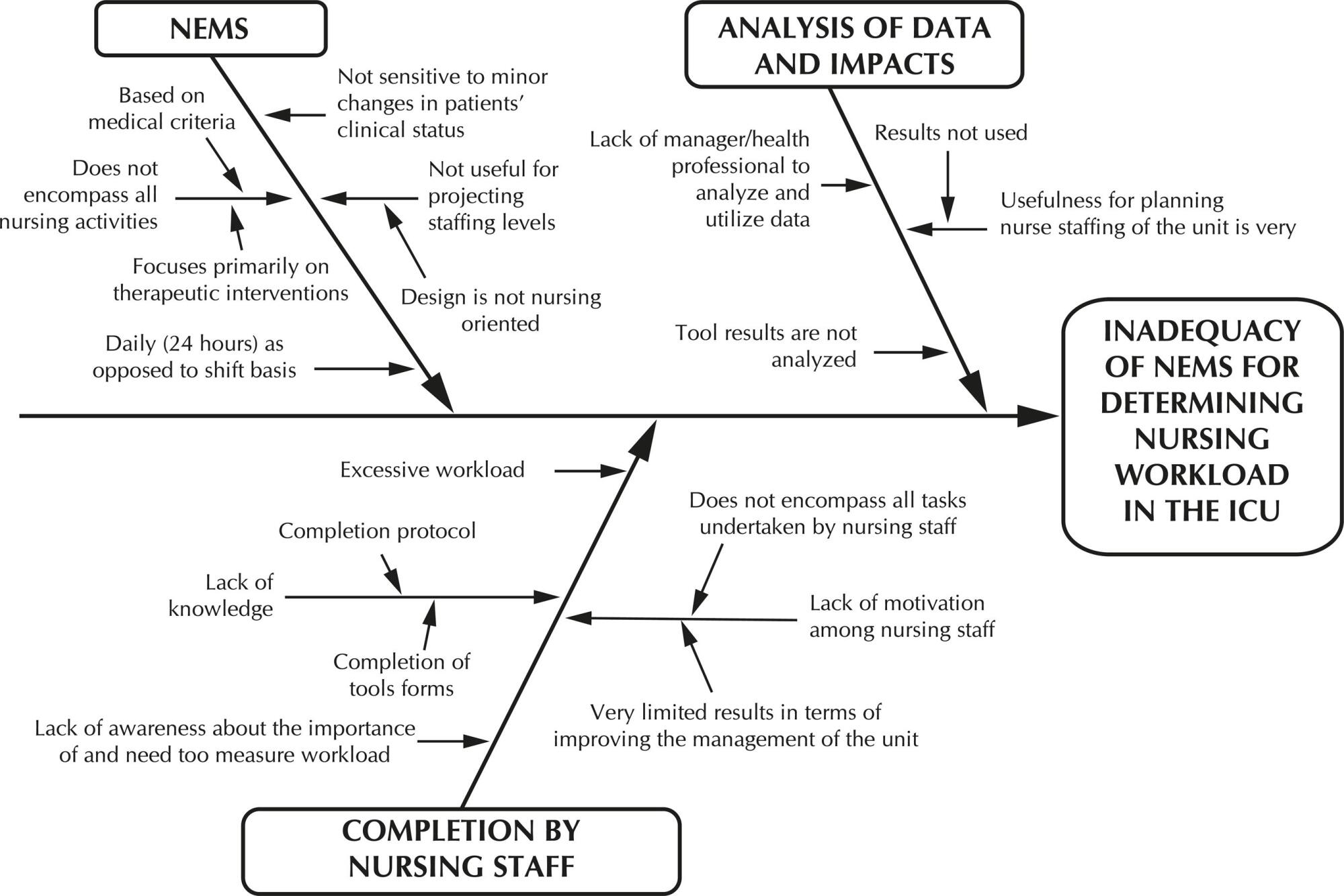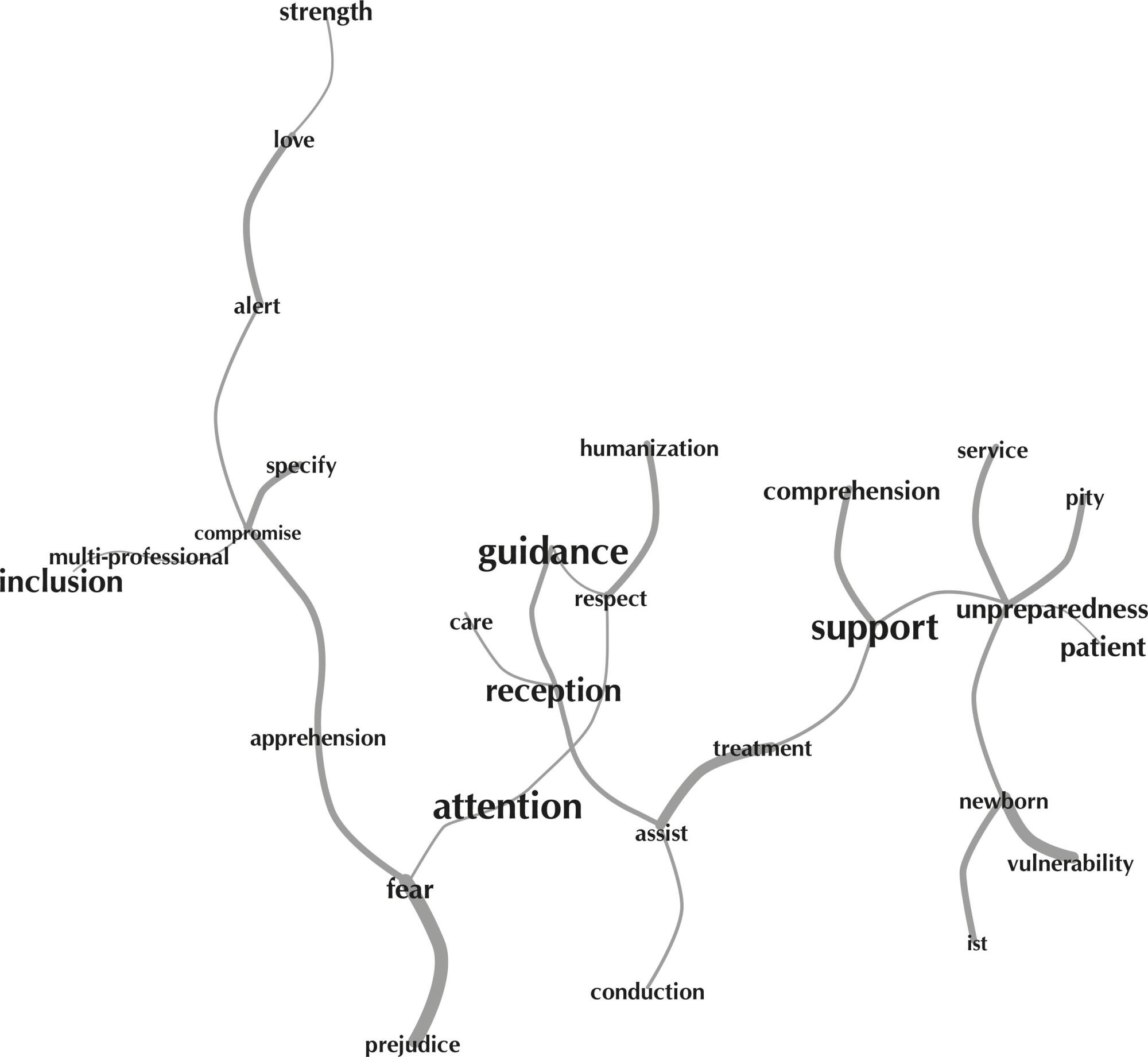-
RESEARCH01-01-2016
Nurses’ performance on indigenous and African-Brazilian health care practices
Revista Brasileira de Enfermagem. 2016;69(5):840-846
Abstract
RESEARCHNurses’ performance on indigenous and African-Brazilian health care practices
Revista Brasileira de Enfermagem. 2016;69(5):840-846
DOI 10.1590/0034-7167.2016690504
Views0See moreABSTRACT
Objective:
to analyze the performance of nurses from the Estratégia Saúde da Família (Family Health Strategy) on health care practices rooted in African and Indigenous cultures.
Methods:
Thematic Oral History was used and interviews were conducted with seven participants, who worked with Primary Health Care in Northeastern Brazil. The analysis was based on Leininger’s Theory of Cultural Care and the intercultural concept of human rights, among others.
Results:
nurses are unaware of the religious and historical context of the ethnic groups cared for and do not appreciate their self-care practices in areas with a predominance of African and indigenous cultures. These practices coexist with the hegemonic biomedical model.
Conclusion:
the debate on cultural competence in the context of professional qualification and exercise is required, aiming to promote the nursing work in the perspective of diversity and comprehensiveness of health care.
-
RESEARCH01-01-2016
Accessibility assessment of assistive technology for the hearing impaired
Revista Brasileira de Enfermagem. 2016;69(5):833-839
Abstract
RESEARCHAccessibility assessment of assistive technology for the hearing impaired
Revista Brasileira de Enfermagem. 2016;69(5):833-839
DOI 10.1590/0034-7167.2016690503
Views0ABSTRACT
Objective:
to assess the automatic accessibility of assistive technology in online courses for the hearing impaired.
Method:
evaluation study guided by the Assessment and Maintenance step proposed in the Model of Development of Digital Educational Material. The software Assessor and Simulator for the Accessibility of Sites (ASES) was used to analyze the online course “Education on Sexual and Reproductive Health: the use of condoms” according to the accessibility standards of national and international websites.
Results:
an error report generated by the program identified, in each didactic module, one error and two warnings related to two international principles and six warnings involved with six national recommendations. The warnings relevant to hearing-impaired people were corrected, and the course was considered accessible by automatic assessment.
Conclusion:
we concluded that the pages of the course were considered, by the software used, appropriate to the standards of web accessibility.
Keywords:Digital ExclusionDistance EducationInternetPeople with Hearing DisabilitiesSelf-help EquipmentSee more -
RESEARCH01-01-2016
Functional disability: health conditions and physical activity practice in older adults
Revista Brasileira de Enfermagem. 2016;69(5):825-832
Abstract
RESEARCHFunctional disability: health conditions and physical activity practice in older adults
Revista Brasileira de Enfermagem. 2016;69(5):825-832
DOI 10.1590/0034-7167.2016690502
Views0See moreABSTRACT
Objective:
to verify the prevalence of functional disability among older adults and how it can affect their health conditions and the regular practice of physical activities.
Method:
this is a household and cross-sectional study conducted with older adults of both sexes. We verified the variables associated with functional disability by Poisson’s regression.
Results:
around 420 older adults participated in this study (68.1% of them being women). We observed a statistically significant association between functional disability, the number of chronic diseases, self-assessed health conditions, and the practice of physical activities; the latter only being found among men. Older adults who reported presenting four or more chronic diseases, self-assessed their health conditions as poor, and were not used to practice physical activities, showing high prevalence of functional disability.
Conclusion:
considering the changeable character of these variables, we recommend that prevention actions be taken, mainly at primary level, to delay the emergence of disability.
-
RESEARCH01-01-2016
Organizational culture of a psychiatric hospital and resilience of nursing workers
Revista Brasileira de Enfermagem. 2016;69(5):817-824
Abstract
RESEARCHOrganizational culture of a psychiatric hospital and resilience of nursing workers
Revista Brasileira de Enfermagem. 2016;69(5):817-824
DOI 10.1590/0034-7167.2016690501
Views0ABSTRACT
Objective:
to analyze the organizational culture of a psychiatric hospital and identify the capacity of resilience of nursing workers.
Method:
quantitative research. For data collection, were used the Brazilian Instrument for Evaluation of Organizational Culture (IBACO – Instrumento Brasileiro para Avaliação da Cultura Organizacional) and the Resilience Scale (RS).
Results:
participants reported the existence of centralization of power and devaluation of workers, despite recognizing the existence of collaboration at work and practices for improving interpersonal relations. In relation to the capacity of resilience, 50% of workers showed high level, and 42.9% a medium level of resilience. The correlation tests revealed negative values between the IBACO and RS domains, indicating that the lower the appreciation of individuals in the institution, the greater their capacity of resilience.
Conclusion:
the organizational values reflect the work organization model in the institution that devalues the workers’ needs and requires greater capacity of resilience.
Keywords:Hospital AdministrationNursingOrganizational CulturePsychological ResilienceWorkers' HealthSee more -
EDITORIAL01-01-2016
Making our nursing research matter
Revista Brasileira de Enfermagem. 2016;69(5):813-814
Abstract
EDITORIALMaking our nursing research matter
Revista Brasileira de Enfermagem. 2016;69(5):813-814
DOI 10.1590/0034-7167-2015-0156
Views0Nurses worldwide are being increasingly exposed to new and interesting research methodologies. At the same time, they are feeling considerable pressure to ensure that the studies they propose are sufficiently methodologically rigorous to pass the scrutiny of review for funding or publication. In this context, it is increasingly important to remind ourselves that methodological rigor […]See more -
EDITORIAL01-01-2016
Fazendo nossa pesquisa em enfermagem ser relevante
Revista Brasileira de Enfermagem. 2016;69(5):813-814
Abstract
EDITORIALFazendo nossa pesquisa em enfermagem ser relevante
Revista Brasileira de Enfermagem. 2016;69(5):813-814
DOI 10.1590/0034-7167-2015-0156
Views0Enfermeiros em todo o mundo estão cada vez mais expostos a metodologias de pesquisa novas e interessantes. Ao mesmo tempo, sentem uma pressão considerável para assegurar que os estudos a que se propõem são suficientemente rigorosos metodologicamente para passar pelo crivo de avaliação para fomento ou publicação. Nesse contexto, é cada vez mais importante lembrarmos […]See more -
REVIEW01-01-2016
O Espiritismo como terapia no cuidado em saúde na epilepsia
Revista Brasileira de Enfermagem. 2016;69(4):804-810
Abstract
REVIEWO Espiritismo como terapia no cuidado em saúde na epilepsia
Revista Brasileira de Enfermagem. 2016;69(4):804-810
DOI 10.1590/0034-7167.2016690425i
Views0See moreRESUMEN
Objetivo:
presentar una breve historia del Espiritismo, la visión de la epilepsia por el Espiritismo, y el potencial de la espiritualidade y religiosidad como tratamientos complementarios y coadyuvantes de la epilepsia.
Método:
esta es una breve revisión del impacto de la fe, la espiritualidad y religiosidad, en particular la filosofía espiritual como tratamiento complementario de los trastornos neurológicos (centrada especialmente en la epilepsia) y la salud mental. Para esto, se realizó una revisión de la religiosidad/espiritualidad y la epilepsia en la base de datos PubMed y SciELO.
Conclusión:
el ejercicio de la espiritualidad y la religiosidad puede ser una estrategia de afrontamiento y tratamiento positivo para apoyar la terapia tradicional de los pacientes con epilepsia y otros trastornos neurológicos. Sin embargo, es necesario desmitificar muchas creencias sobre la epilepsia así como mejorar el conocimiento sobre este importante aspecto de la dimensión de salud entre profesionales, cuidadores y pacientes para explorar su potencial para el tratamiento y el apoyo.
-
REVIEW01-01-2016
The Spiritism as therapy in the health care in the epilepsy
Revista Brasileira de Enfermagem. 2016;69(4):804-810
Abstract
REVIEWThe Spiritism as therapy in the health care in the epilepsy
Revista Brasileira de Enfermagem. 2016;69(4):804-810
DOI 10.1590/0034-7167.2016690425i
Views0See moreABSTRACT
Objective:
to present a brief history of Spiritism, the vision of epilepsy by Spiritism, and the potential of spirituality and religiosity care as complementary and coadjutants treatments in epilepsy.
Method:
this is a brief review about the impact of faith, spirituality, and religiosity, particularly the Spiritism philosophy as complementary treatment to neurological disorders (particularly focusing on epilepsy) and mental health. We conduct a review of published articles (about religion/spirituality and epilepsy) in the Pubmed and SciELO databases.
Conclusion:
the exercise of spirituality and religiosity can be a positive coping strategy to support the traditional therapy of patients with epilepsy and other neurological disorders. However, it is necessary to demystify myths and beliefs about the epilepsy and improve knowledge about this important health dimension among professionals, patients, and caregivers to explore their full treatment and supportive potential.
-
RESEARCH01-01-2017
Adherence to standard precautions in a teaching hospital
Revista Brasileira de Enfermagem. 2017;70(1):96-103
Abstract
RESEARCHAdherence to standard precautions in a teaching hospital
Revista Brasileira de Enfermagem. 2017;70(1):96-103
DOI 10.1590/0034-7167-2016-0138
Views0ABSTRACT
Objective:
analyze related factors and the level of adherence to standard precautions of nursing professionals from the clinical medical division of a teaching hospital.
Method:
a quantitative, cross-sectional, analytical study was conducted with 54 nursing professionals using the Psychometric Scale of Adherence to Standard Precautions, translated and validated to Brazilian Portuguese.
Results:
the global score of adherence was intermediate (4.41); no statistically significant correlation was observed between adherence and professional category (p=0.404) and length of professional practice (p= 0.612). A correlation was observed between ‘Washes hands after removing disposable gloves’ (p=0.026) and professionals with nursing practice above 10 years.
Conclusion:
adherence to standard precautions by the nursing team was intermediate, with no statistically significant difference in relation to the professional category and length of professional practice.
Keywords:Exposure to Biological AgentsNursing, TeamOccupational RisksPersonal Protective EquipmentUniversal PrecautionsSee more
-
RESEARCH01-01-2017
Analysis of adverse events following immunization caused by immunization errors
Revista Brasileira de Enfermagem. 2017;70(1):87-95
Abstract
RESEARCHAnalysis of adverse events following immunization caused by immunization errors
Revista Brasileira de Enfermagem. 2017;70(1):87-95
DOI 10.1590/0034-7167-2016-0034
Views0See moreABSTRACT
Objective:
to analyze adverse events following immunization (AEFI) caused by immunization error in the state of Paraná, Brazil, from 2003 to 2013.
Method:
this is a descriptive, documental, retrospective, and quantitative research using secondary data from the Adverse Event Following Immunization Information System and the Immunization Program Evaluation System. We included cases confirmed and/or associated with different types of vaccines. For the analysis, we collected frequencies and incidence rates, and used simple linear regression models with Student’s t-test.
Results:
it was observed an AEFI increase due to immunization errors, especially hot subcutaneous abscesses. BCG vaccine had the highest incidence of adverse events and children under one year old were the most affected individuals.
Conclusion:
the current scenario is worrisome because these are preventable AEFI – injuring patients due to bad vaccination practices – that may undermine the population’s confidence, reducing immunization coverage, and the progress in the control of vaccine-preventable diseases.

-
RESEARCH01-01-2017
Nursing practice environment and work satisfaction in critical units
Revista Brasileira de Enfermagem. 2017;70(1):79-86
Abstract
RESEARCHNursing practice environment and work satisfaction in critical units
Revista Brasileira de Enfermagem. 2017;70(1):79-86
DOI 10.1590/0034-7167-2016-0211
Views0See moreABSTRACT
Objective:
to analyze the association between the environment of nursing practices and work satisfaction in Intensive Care Units (ICU).
Method:
a cross-sectional study was performed in eight adult ICUs of a public university hospital between 2012 and 2015. The Nursing Work Index-Revised (NWI-R), in their short forms, and the Index of Work Satisfaction (IWS) were applied to investigate the environment of nursing practices and work satisfaction, respectively.
Results:
a total of 100 (34.84%) nurses and 187 (65.15%) nursing assistants/technicians participated in this study. The environment was favorable for autonomy and relationships and it showed vulnerability for control of practices and organizational support. The IWS score indicated low work satisfaction. “Environment of practices”, “length of work in the ICU” and “willingness to work” were associated with work satisfaction.
Conclusion:
to invest in the environment of practices, in factors that promote willingness to work and length of experience in the ICU increases nursing work satisfaction.
-
RESEARCH01-01-2017
Emergency interventions for air medical services trauma victims
Revista Brasileira de Enfermagem. 2017;70(1):54-60
Abstract
RESEARCHEmergency interventions for air medical services trauma victims
Revista Brasileira de Enfermagem. 2017;70(1):54-60
DOI 10.1590/0034-7167-2016-0311
Views0See moreABSTRACT
Objective:
to analyze emergency interventions for air medical services trauma victims, considering the time at the scene of trauma and the severity of the victims.
Method:
This was a descriptive, correlational and quantitative study, conducted from October of 2014 to December of 2015. Six nurses participated, completing an instrument containing emergency interventions performed in the care of victims after the occurrence of trauma. The sample consisted of 97 treatments.
Results:
Among the 97 for whom care was provided, peripheral venipuncture was performed in 97.94% of the cases; immobilization, including a backboard, was used in 89.70% of cases. The most commonly used medications were dipyrone in 44.33%, and ondansetron in 76.29%. The time on the scene showed significance with the severity of the victims. The Glasgow Coma scores were inversely related to time on the scene.
Conclusion:
Further studies are necessary, focused on care protocols for trauma victims
-
RESEARCH01-01-2017
Evaluation of the hospital accreditation program: face and content validation
Revista Brasileira de Enfermagem. 2017;70(1):47-53
Abstract
RESEARCHEvaluation of the hospital accreditation program: face and content validation
Revista Brasileira de Enfermagem. 2017;70(1):47-53
DOI 10.1590/0034-7167-2016-0184
Views0ABSTRACT
Objective:
to describe the results of face and content validation of the questionnaire entitled Quality Improvement Implementation Survey, and of two complementary scales as part of the adaptation process to the Brazilian language and culture.
Method:
included the following stages: (1) translation and synthesis of translations; (2) consideration by the expert committee; (3) back translation; (4) evaluation of verbal understanding by the target population.
Results:
the questionnaire was translated into Portuguese and its final version included 90 items. In the pre-test, the target population evaluated all items as easy to understand, with the global average of 4.58 (maximum value = 5).
Conclusion:
the questionnaire is currently translated into Portuguese and adapted to the Brazilian context. The adapted version maintained the semantic, idiomatic, conceptual and cultural equivalence, according to the assessment of the expert committee and the information provided by the target population, which confirmed the face and content validity.
Keywords:AccreditationAssurance of Health Care QualityHospital AdministrationOutcome Assessment (Health Care)Validation StudiesSee more -
RESEARCH01-01-2017
Adecuación de escalas para medir cargas de trabajo mediante metodología de calidad
Revista Brasileira de Enfermagem. 2017;70(1):39-46
Abstract
RESEARCHAdecuación de escalas para medir cargas de trabajo mediante metodología de calidad
Revista Brasileira de Enfermagem. 2017;70(1):39-46
DOI 10.1590/0034-7167-2016-0246
Views0RESUMEN
Objetivo:
Determinar cuál de las escalas evaluadas (NEMS y NAS), es más adecuada para Unidades de Cuidados Intensivos aplicando metodología de calidad.
Método:
Tras identificar como oportunidad de mejora la no adecuación de la escala NEMS para determinar cargas de trabajo de enfermería en UCI, se aplica metodología de los ciclos de mejora a dicha escala y a la NAS, como propuesta de mejora, evaluando los criterios: medición de cargas de trabajo al día y por turno, inclusión de todas las actividades enfermeras, y análisis por paciente y unidad.
Resultados:
Escala NEMS no muestra diferencias significativas en el cumplimiento (67%). Comparación NEMS-NAS, todos los criterios excepto el 1º, obtienen mejora significativa. NEMS sólo valora el criterio 1 (64,22%), y NAS todos con un cumplimiento para el 1º, 2º y 4º del 64,74%, y el 3º del 100%.
Conclusión:
La escala NAS es más adecuada para medir cargas de trabajo de enfermería en UCI.
Keywords:Carga de TrabajoControl de CalidadEnfermeríaGestión de la CalidadUnidades de Cuidados IntensivosSee more
-
ORIGINAL ARTICLE12-13-2024
Nurses’ experience regarding patient safety in mobile pre-hospital care
Revista Brasileira de Enfermagem. 2024;77(5):e20230529
Abstract
ORIGINAL ARTICLENurses’ experience regarding patient safety in mobile pre-hospital care
Revista Brasileira de Enfermagem. 2024;77(5):e20230529
DOI 10.1590/0034-7167-2023-0529
Views0See moreABSTRACT
Objectives:
to understand nurses’ experience regarding patient safety in mobile pre-hospital care.
Method:
a qualitative, exploratory and descriptive study, conducted with nurses active in mobile pre-hospital care services. Semi-structured interviews were conducted, audio-graved and submitted to Bardin’s content analysis.
Results:
from four thematic categories established, nurses reported the care and management skills necessary to work in this service. They demonstrated a commitment to ensuring safe care for patients, staff and spectators. They highlighted the actions taken to prevent and mitigate incidents. However, they based their experiences on practice protocols and individual actions, expressing the need to improve knowledge about patient safety.
Final Considerations:
mobile pre-hospital care nurses’ experience in relation to patient safety was limited, suggesting the need for training on the subject, alignment of work processes and implementation of strategies, aiming to guarantee safe care.
-
ORIGINAL ARTICLE12-13-2024
Repercussions of the pandemic on tuberculosis control actions from the perspective of health professionals
Revista Brasileira de Enfermagem. 2024;77(5):e20230477
Abstract
ORIGINAL ARTICLERepercussions of the pandemic on tuberculosis control actions from the perspective of health professionals
Revista Brasileira de Enfermagem. 2024;77(5):e20230477
DOI 10.1590/0034-7167-2023-0477
Views0See moreABSTRACT
Objectives:
to analyze the repercussions of the COVID-19 pandemic on tuberculosis control actions from the perspective of primary health care professionals.
Methods:
this descriptive study with a qualitative approach was conducted from November 2022 to April 2023, using semi-structured interviews with 11 key informant professionals from primary health care units in a Brazilian capital. Data were organized using Atlas.ti 22.0 software and subjected to thematic-categorical content analysis.
Results:
the pandemic scenario caused alterations in the work process, necessitating abrupt adaptations, and led to detrimental impacts on the health of professionals and tuberculosis control actions, which were reduced or discontinued.
Final Considerations:
there was evident unpreparedness and a lack of resources from various governmental levels and health services to handle the public health emergency situation without severe harm to the provision of essential services.
-
Training of Brazilian indigenous nurses: between human rights, valuing diversity and inclusion
Revista Brasileira de Enfermagem. 2024;77(5):e20230430
Abstract
Training of Brazilian indigenous nurses: between human rights, valuing diversity and inclusion
Revista Brasileira de Enfermagem. 2024;77(5):e20230430
DOI 10.1590/0034-7167-2023-0430
Views0See moreABSTRACT
Objectives:
to analyze the possibilities and potential of training indigenous nurses, given the Brazilian Health System (SUS), understanding the relationships between education and health.
Methods:
theoretical-reflective study, based on scientific literature, aligned with the experience, critical thinking of its authors and the Sustainable Development Goals in Brazil.
Results:
this text articulates three axes: Potential for including indigenous students in nursing training; Paths to achieving equity through inclusion and retention policies for indigenous students at different levels; and Implications of this for the SUS and global health.
Final Considerations:
indigenous students, beneficiaries of affirmative actions, face challenges of inclusion and retention in public universities that directly impact their academic training. Added to this are the difficulties identified in basic education, professor training and implementation of permanence policies, with consequences for services and training at other levels.
-
ORIGINAL ARTICLE12-13-2024
Interobserver agreement in Reception and Risk Stratification in Obstetrics implementation
Revista Brasileira de Enfermagem. 2024;77(5):e20230361
Abstract
ORIGINAL ARTICLEInterobserver agreement in Reception and Risk Stratification in Obstetrics implementation
Revista Brasileira de Enfermagem. 2024;77(5):e20230361
DOI 10.1590/0034-7167-2023-0361
Views0See moreABSTRACT
Objectives:
to analyze interobserver agreement in the Reception and Risk Stratification in Obstetrics protocol implementation.
Methods:
a cross-sectional study carried out during Reception and Risk Stratification in Obstetrics implementation, conducted in a tertiary hospital in southern Brazil with 891 participants in January 2020. Descriptive and interobserver agreement analysis was carried out using the Kappa coefficient in the risk stratification assigned by the triage nurse and reviewed by the researcher.
Results:
around half of the calls (55.6%) were stratified as not very urgent (green), followed by urgent (yellow) (31.8%), very urgent (orange) (9.3%), not urgent (blue) (3.4%) and no emerging stratification (red). Agreement analysis of revised stratification found Kappa values of 0.20 (blue), 0.54 (green), 0.77 (yellow) and 0.80 (orange).
Conclusions:
most appointments were non-urgent. The agreement analysis between the revised and assigned risk stratification revealed greater interobserver agreement as the priority level increased.
-
ORIGINAL ARTICLE12-13-2024
Adaptation and implementation of a Nursing care protocol for children in the Amazon Region
Revista Brasileira de Enfermagem. 2024;77(5):e20230245
Abstract
ORIGINAL ARTICLEAdaptation and implementation of a Nursing care protocol for children in the Amazon Region
Revista Brasileira de Enfermagem. 2024;77(5):e20230245
DOI 10.1590/0034-7167-2023-0245
Views0See moreABSTRACT
Objectives:
to describe the process of implementing an adapted protocol for pediatric nursing care in a health unit located in a municipality in the Amazon Region.
Methods:
methodological research conducted in a basic health unit with four family health teams in the state of Rondônia, involving seven nursing professionals. Data collection occurred between October 2020 and April 2022, following the research phases: situational diagnosis, exploratory phase, protocol definition, implementation, and evaluation.
Results:
the outcome was the adaptation and implementation of a nursing care protocol for children.
Final Considerations:
the adaptation and implementation process can be an effective approach to improving care, strengthening nursing as a profession with a solid foundation in scientific and clinical evidence. This facilitates early problem identification and appropriate guidance, leading to better health outcomes for children.
-
ORIGINAL ARTICLE12-13-2024
Nurses’ experiences in caring for people with mental health problems hospitalized due to clinical comorbidities
Revista Brasileira de Enfermagem. 2024;77(5):e20230136
Abstract
ORIGINAL ARTICLENurses’ experiences in caring for people with mental health problems hospitalized due to clinical comorbidities
Revista Brasileira de Enfermagem. 2024;77(5):e20230136
DOI 10.1590/0034-7167-2023-0136
Views0See moreABSTRACT
Objectives:
to understand nurses’ experiences in caring for people with mental health problems hospitalized due to clinical comorbidities in non-psychiatric Inpatient Units.
Methods:
qualitative study, guided by Alfred Schutz’s social phenomenology. Sixteen phenomenological interviews were conducted. The content was analyzed and discussed based on the literature, through the composition of three categories of analysis.
Results:
three categories emerged in the study: Challenges in care faced by nurses; Fragmented care action; and Ideal care. The disarticulation of the clinic was revealed, as described by nurses, showing care as an action far removed from the comprehensiveness of a person. Nurses’ performance is guided predominantly by biomedical reference, disregarding appreciation of subjectivity.
Final Considerations:
it was observed that nurses attribute the responsibility for patient care to factors external to their life-world, when, in fact, these aspects should be components that help them in comprehensive care construction.
-
REVIEW11-29-2024
Assessment of knowledge in oncology about care for transgender people: a scoping review
Revista Brasileira de Enfermagem. 2024;77:e20230532
Abstract
REVIEWAssessment of knowledge in oncology about care for transgender people: a scoping review
Revista Brasileira de Enfermagem. 2024;77:e20230532
DOI 10.1590/0034-7167-2023-0532
Views0ABSTRACT
Objective:
to identify evidence available in the literature on instruments and methodologies used to assess healthcare professionals’ knowledge about cancer care for the transgender population.
Methods:
a scoping review was conducted in seven databases, including studies that answered the question: what is the healthcare professionals’ level of knowledge about cancer care for the transgender population?
Results:
forty-one articles were selected that dealt specifically with healthcare professionals’knowledge in relation to care for the LGBTQIAPN+ population, especially the transgender population. Eighteen studies assessed patients’ perceptions of professionals’knowledge, whereas other studies used their own assessment tools, considering the global context of LGBTQIAPN+ health.
Conclusions:
there is no tested and validated instrument that assesses the knowledge about the transgender population’s oncological health, highlighting the need to construct and validate an instrument focused on this population’s needs.
Keywords:Health Services for Transgender PeopleNeoplasmsOncologyProfessional TrainingTransgender PeopleSee more
Search
Search in:
Nuvem de Tags
Aged (144) Atenção Primária à Saúde (239) COVID-19 (104) Cuidados de Enfermagem (269) Educação em Enfermagem (151) Educação em Saúde (139) Enfermagem (930) Estudos de Validação (131) Health Education (144) Idoso (208) Mental Health (149) Nursing (987) Nursing Care (306) Patient Safety (151) Primary Health Care (284) Qualidade de Vida (104) Quality of Life (106) Saúde Mental (145) Segurança do Paciente (150) Validation Studies (108)




